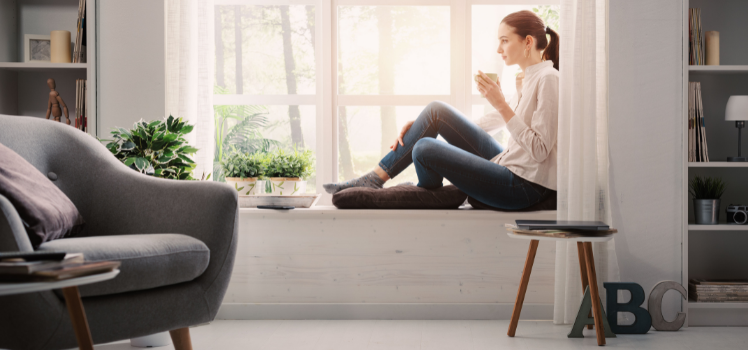Renting out property is a big decision and can be challenging. So why do people become landlords? Some fall into it accidentally, whilst others choose a buy-to-let for extra income or a retirement fund. In fact, 38% of landlords told us they let property as a long-term investment (UK Landlord Survey 2021).
There are many other reasons people may choose to let their properties. But what are they?
- Inheriting property
- Having more financial security
- Renting instead of selling
- Enjoying more flexibility
- Investing in property
Renting out an inherited property
Sometimes, landlords fall into renting because they inherited a property from a relative (5% according to the UK Landlord Survey 2021). In 2017, Royal London estimated that £400 billion worth of property was set to be passed from grandparents to younger generations. With an ageing population, this figure looks likely to increase.
If they already have a home of their own, many people in this situation choose to let it out. Some decide to sell a home they’ve inherited, but this can be difficult if the property is old and needs improvement. Renting the property out, whether short or long term, generates income to pay for repairs and redecorating whilst the property value increases over time. Plus, if it has a particularly sentimental value such as being a childhood home, some may prefer to keep the property ‘in the family’ rather than sell it on.
Latest article: House Viewings For Buy To Let Landlords: Benefits Of Doing Your Own Viewings
Letting a property for additional income
In our UK Landlord Survey 2021, 31% of landlords said they let their property as a second source of income. If you already have a full-time job, renting out a property can provide a steady secondary income on top of your monthly salary.
If you own the rental property outright, the monthly rent payments can be a big boost. If you don’t, the money can cover the mortgage and maintenance of the property. Any money left over after expenses goes straight into your pocket.
A huge benefit of receiving a rental income is the financial security it can provide. Getting a consistent monthly recurring revenue is a number one priority for 43% of landlords (UK Landlord Survey 2021), Of course, there is the worry of tenants not paying their rent, but landlords can get Rent Protection to minimise the financial risk.
Rent Protection is a benefit of our Complete Plan. Whilst your tenant occupies the property, your rent (up to a max of £2,500 per month) will be assured for up to 6 months. Regardless of whether your tenant pays, you will receive your full rent within five business days from the rent due date. See what other benefits come with our Complete Plan here.
Find out how much rent you should charge for your property: How much rent should you charge?
The flexibility of renting out property
A big selling point of becoming a landlord is the flexibility of working for yourself. Being your own boss isn’t always easy, but the freedom you gain often outweighs the negatives. When you work for yourself, you make all the decisions, and set your own hours and goals, which can be very appealing.
If you’re a self-managing landlord, you also have first-hand involvement in selecting who will live in your home. Plus, you get the satisfaction of knowing you’ve provided a great home for someone to live in.
Read more: What Tenants Want: Top 11 Features Tenants Look For In A Property 2023
Renting out your property instead of selling
If you’re ready to move, but the market conditions aren’t favourable, you can rent out your property instead of selling it for a loss. Renting gives you time to reconsider your options, whilst making some extra cash, then you can sell once you are in a position to make a profit, or at least not a loss.
Struggling to find a tenant? Check out our handy article: How to Find a Tenant for Rental Property
Renting out property as a long-term investment
Demand for rental properties is high, especially amongst the younger generation. The UK’s rental sector is continuously expanding, with a sixth of the population now living in rented accommodation from private landlords. As such, there is plenty of scope for making money from buy-to-let properties.
According to our UK Landlord Survey 2021, 35% of landlords let their property as a means to fund their retirement or pension. Investing in property allows you to invest without risking too much capital, as you can secure finance. The value of your property will still increase based on the entire investment, which can result in significant profit, giving you options and providing further financial security.
First-time landlord? Read Our Top Money Saving Tips.
Do you rent out a property?
Why did you become a landlord? Did you inherit your property? Do you plan to let for a while before selling? Perhaps you made an investment and it’s become your full-time job? Share your story in the comments.



